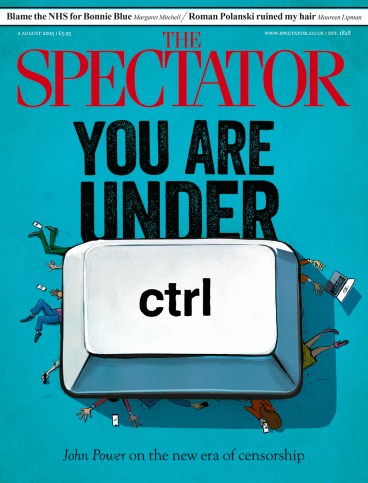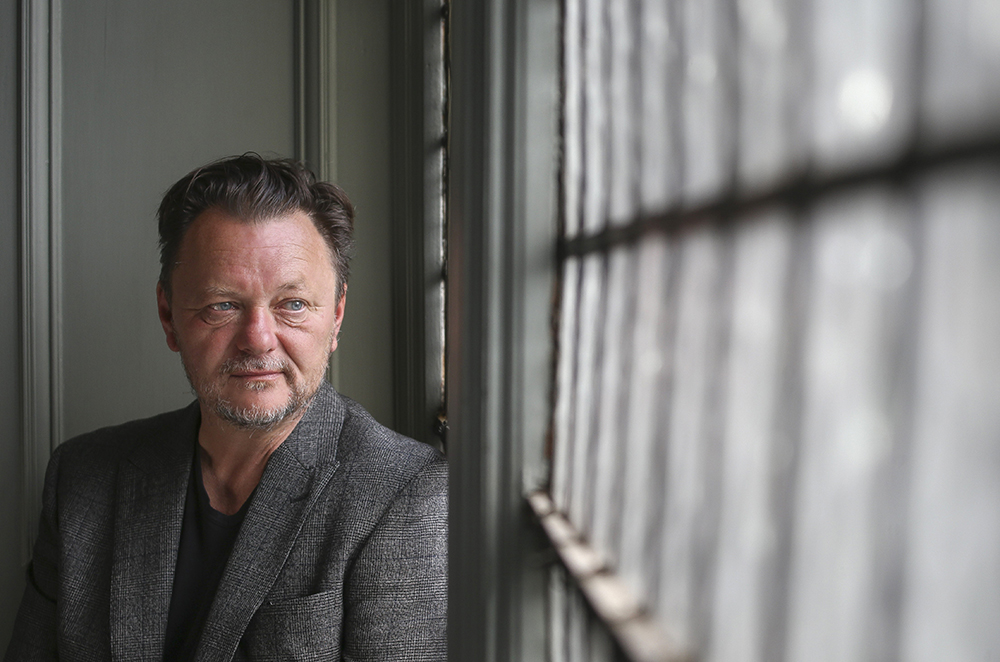
‘Fucking men,’ spits a woman towards the end of John Niven’s brilliant tenth novel, The Fathers. ‘Why do they always think it’s about fixing everything?’ It’s a classic hit of deadpan humour from a novelist best known for sending up the most appalling blood, spunk’n’booze-spattered excesses of modern men.
A former A&R man with a reputation for partying harder than any rock star, Niven made his name satirising the Britpop scene in his 2008 novel Kill Your Friends. Influenced by Vladimir Nabokov, Martin Amis and Irvine Welsh, he excelled at condensing his characters’ most brutal, misanthropic thoughts into kick-in-the-balls prose. The hectic, testosterone-spiked plotting and shock humour force conspiratorial laughs from readers before their spinning moral compasses knows what’s hit them.
But Niven, now 66, has grown increasingly interested in the more tender feelings squirming within the puffed-out chests of even his most venal characters. His previous book, O Brother, was non-fiction – a painful, piercing examination of the life of his younger sibling Gary, a petty criminal who died by suicide in 2010. In it, Niven compared his own life as a wealthy and successful arts graduate with the hardscrabble existence of Gary, whose debts he could have paid with a wave of his wallet. The complex emotional truths he squared up to for that book have clearly helped broaden the psychological scope of the fictional characters who appear in The Fathers.
Like Niven and his brother, this is a story of lives on different tracks. But unlike them, the titular fathers – two men in their late forties who meet outside a Glasgow hospital on the night their sons are born – come from very different backgrounds. Dan is an arts graduate who’s made a fortune writing and producing a long-running detective series set in the Scottish highlands. He drives a Tesla, only eats environmentally friendly salmon and dotes on his clever wife.
He’s caught off guard when Jada, a small-time crook and now the father of a sixth child by a sixth woman, appears beside him in the darkness to pass judgment on the bodies of various expectant mothers passing by: ‘Ye’d ride that until the fucking wean pushed ye oot, eh?’ Gentle, thoughtful Dan is left fumbling for words while his writerly magpie mind snatches up Jada’s slang for future dialogue. Dan’s son will come home to a lovingly baby-proofed nursery, his name already down for the local private school. Jada’s will soon be chugging energy drinks from his bottle while passively smoking weed.
Two fathers’ lives become a frantic scramble to ‘fix’ issues that spiral out of their control
But the plot quickly tangles the two fathers’ lives into a frantic scramble to ‘fix’ issues that spiral out of their control. Without preaching on social issues, Niven uses a catastrophic domino-topple of events to ask what power either man has to control the violent turns their lives take. We must consider the roles class and education play as both continue to regard one another as mugs. The horrors they endure expose heartbreaking, levelling vulnerabilities.
The book’s most shocking scene rips Dan from his middle-class cocoon; its most tender moment finds Jada (high on class As) lovingly atuned to the beat of his son’s ‘rabbit heart’. Without losing any of the propulsive, sweary energy or outrageous comedy of his early work, Niven has added real, lingering depth to his fiction. It’s this new richness of heart that makes The Fathers such a blockbusting explosion of toxic masculinity. A week after finishing it, I still feel my ears ringing as I wait for the smoke to clear.







Comments